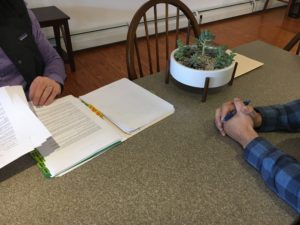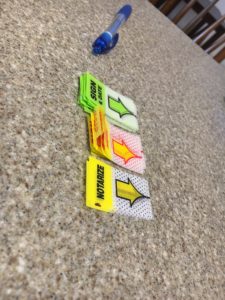NOTE: this blog was written in May 2020, some of this information could change over time.
Feel free to consult your real estate agent/broker or attorney with any questions! – Erin Wilson
How much do closing fees typically add up to?
This can certainly vary but in general we say to plan for roughly $10,000 – $15,000 in closing costs. This does NOT include the Land Bank fee on Nantucket. These costs include items such as attorney’s fees, plot plan, title exam, title insurance and recording fees. Once you have an accepted offer and have hired your attorney, they will work with you to outline these costs so you can plan accordingly.
In your final closing statement, there will likely be additional adjustments made that can result in a credit or debit to you. These could include things such as fuel, water & taxes. If you are buying a condo, it could include HOA fees. For example, if the seller pays to have the fuel tank filled up fully before the property transfers the seller would get a credit at the closing and you, the buyer, would get a debit since you will be the one using the fuel in that tank.
Nantucket Land Bank Fee: What is it and how is it paid?

On Nantucket, there is a Land Bank fee which is 2% of the purchase price of a home and is paid by the buyer. “The Nantucket Islands Land Bank is a land conservation program created to acquire, hold, and manage important open spaces and endangered landscapes for the use and enjoyment of the general public.” You can learn more about the Land Bank HERE.
The 2% fee is paid at the time of closing and added onto your closing costs by your attorney and they will remit payment, the Land Bank then stamps the deed which is required before recording the deed at the Registry of Deeds.
There are a few exemptions: first-time home buyers up to $850,000 (as of March 2021) and some organizations, such as charitable and religious, are exempt from paying this fee. You can find the full regulations HERE.
You can also learn much more about The Nantucket Land Bank in this blog written by my colleague Gina.

What is a deed?
“A deed is any legal instrument in writing which passes, affirms or confirms an interest, right, or property and that is signed, attested, delivered, and in some jurisdictions, sealed. It is commonly associated with transferring title to property.” – Wikipedia
What is title insurance? How much does it cost? Why do I need it?
Title insurance will be required by your lender and if you are paying cash. It is still recommended to protect against any defects in the title of the property you are purchasing. Your attorney can explain defects in more detail but they could include mis-spellings, an old mortgage not properly discharged, etc.
Title insurance generally costs a few thousand dollars for a one-million dollar purchase and as the purchase price goes up the cost per $1000 starts to come down.
THIS is an interesting article on title insurance from Boston.com providing some more context.
Do I need to hire an attorney?

In the state of Massachusetts, you are required to hire an attorney to handle your closing and this is for consumer protection.
No matter what it is a good idea to ensure you are protected and the property you are purchasing is thoroughly explored for any potential issues (i.e. open building permits, zoning issues, etc.).
Nantucket is a very unique market and given this, we recommend you use an attorney that does a fair amount of business on island. You should ask your real estate agent for a list of attorneys who frequently handle Nantucket real estate transactions.
Do I need to be in person/on island for the closing?
You do not need to be on island for the closing. If you are comfortable with it, your real estate agent can do the final walkthrough of the property to ensure anything to be addressed prior to closing is completed, that property has been cleared of prior owner’s belongs and there are no visible issues to address. With technology today the good news is that you can arrange a virtual walkthrough with your agent.
Your attorney will be sure you receive closing documents in advance to sign and return so they can complete everything on the day of the closing. You should account for time to send the paperwork back and forth and you will need to get the closing documents notarized so be sure you keep the week prior to your closing on your calendar. Be sure your attorney is aware of any non-US travel plans.
Either you or your bank/mortgage company will wire money in advance or day of to your attorney’s escrow account. These funds will get transferred to the seller’s attorney’s office which once all documents have been executed and the deed is on record.

How do I know the property is officially mine?
After all of the papers are signed and the Land Bank has stamped the deed, the deed can be recorded at the Registry of Deeds which makes your transaction official!

